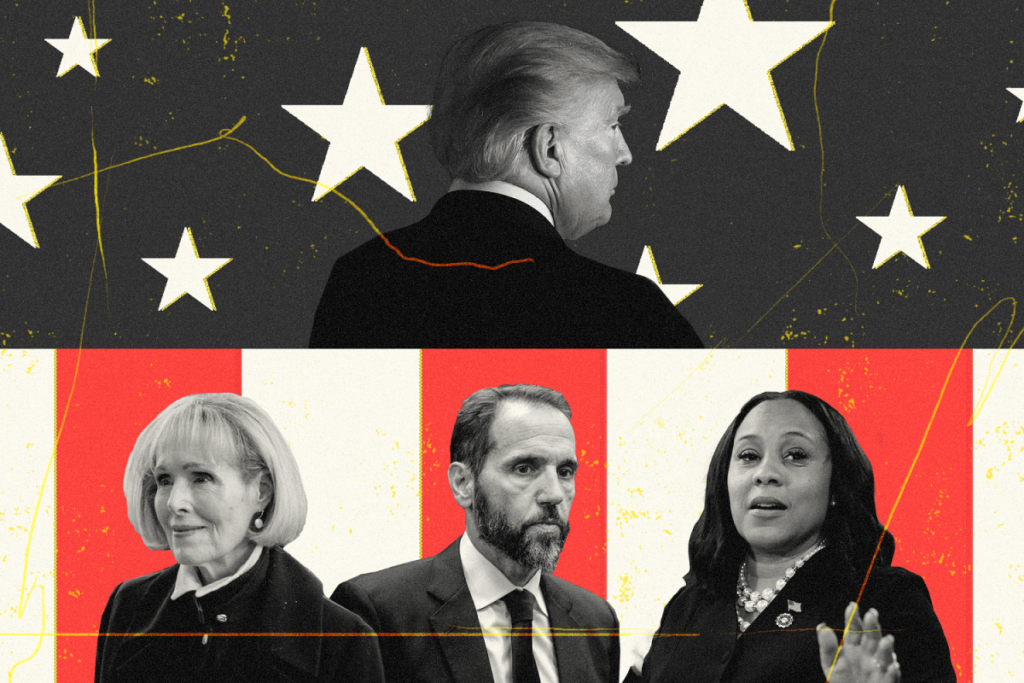Donald Trump faces critical challenges as the U.S. approaches the November 5 election. His legal troubles, which include federal and state criminal cases as well as civil suits, are intricately tied to the electoral outcome. If Trump wins the presidency, he is likely to see significant delays in or dismissals of his legal cases, particularly the federal criminal matters. A successful campaign would provide Trump with leverage to argue for immunity based on a Supreme Court ruling regarding presidential immunity. Conversely, a loss to Vice President Kamala Harris could result in Trump facing immediate consequences, including potential jail time stemming from his conviction in New York, which is scheduled for sentencing just weeks after the election. The risk of further criminal trials and civil litigation looms large, intensifying the stakes of the election for the former president.
Central to Trump’s legal odyssey is his impending sentencing on 34 felony counts related to falsifying business records in New York. Scheduled for November 26, shortly after the election, the sentencing could lead to jail time, although analysts suggest that this outcome remains uncertain. Trump’s legal team is attempting to challenge the conviction based on presidential immunity and improper evidence admission during the trial. A win in the election would bolster Trump’s defense strategy, as it would allow his attorneys to argue that presidential duties preclude him from facing sentencing while in office. Meanwhile, a defeat at the polls could prompt a swift progression to a potentially significant prison sentence.
The federal election interference case led by special counsel Jack Smith also looms large for Trump. It charges him with conspiracy for attempting to overturn the 2020 election results. Although the trial was delayed as the Supreme Court explored Trump’s immunity claims, the case remains active and could result in further legal complications for him in 2025 if he loses the election. Trump has indicated he would remove Smith from his position should he regain the presidency, which complicates the future of the case. Regardless of the election’s outcome, legal experts suggest the Department of Justice will need to navigate additional complexities in proceeding against Trump, particularly given the potential for interruptions in the prosecution’s approach.
Additionally, another key aspect of Trump’s legal troubles is the Georgia election interference case, where he and numerous associates are charged with conspiring to overturn the election results. This case is on hold pending appeals that may impact its trajectory. Should Trump lose the election, it is possible that a trial date could be set, but ongoing legal challenges and appeals are likely to prolong the proceedings. If he wins, Trump’s legal team would likely argue that his presidential duties insert further delays, potentially halting the case until his term concludes. Legal analysts note that this could effectively shield Trump from facing state charges until after his presidency.
Trump also grapples with the classified documents case, where allegations include lying to federal investigators about retaining sensitive materials post-presidency. After a significant legal maneuver in which a judge dismissed Smith’s case due to claims of an illegal appointment, Smith is appealing the decision. Even if Trump succeeds in the election, the progress of this appeal might remain unaffected; however, the potential for the special counsel’s office to shut down under a new administration remains high. This situation encapsulates the overall uncertainty surrounding Trump’s legal landscape and how closely it is tied to his imminent electoral prospects.
Trump’s civil woes are equally daunting, with ongoing appeals related to significant judgments against him. The former president is contesting civil fraud judgments surpassing $500 million, as well as two major awards related to sexual assault accusations from E. Jean Carroll, which could impose further financial distress. He is also faced with multiple civil suits stemming from his actions surrounding the January 6 insurrection, which could complicate his defense as they progress through the judicial system. These civil cases, largely independent of the electoral outcome, stand to have significant repercussions on Trump’s future, regardless of whether he secures another term in office.
Lastly, Trump’s defamation suit from members of the Exonerated Five positions yet another layer of legal complexity. Their case arose from statements Trump made during a recent presidential debate, presenting a critical challenge that is unlikely to be influenced by the election results. Under past Supreme Court rulings, it has been established that presidents can’t claim immunity for civil cases not tied to their official duties, suggesting that this lawsuit is set to proceed irrespective of the electoral outcome. Legal experts believe this could parallel historical cases against past presidents, reinforcing the reality that Trump’s legal battles will continue to unfold, directly impacting both his personal and political future in profound ways. Overall, the intertwining nature of Trump’s legal challenges and political aspirations reflects a unique and unprecedented moment in American political and legal history.

